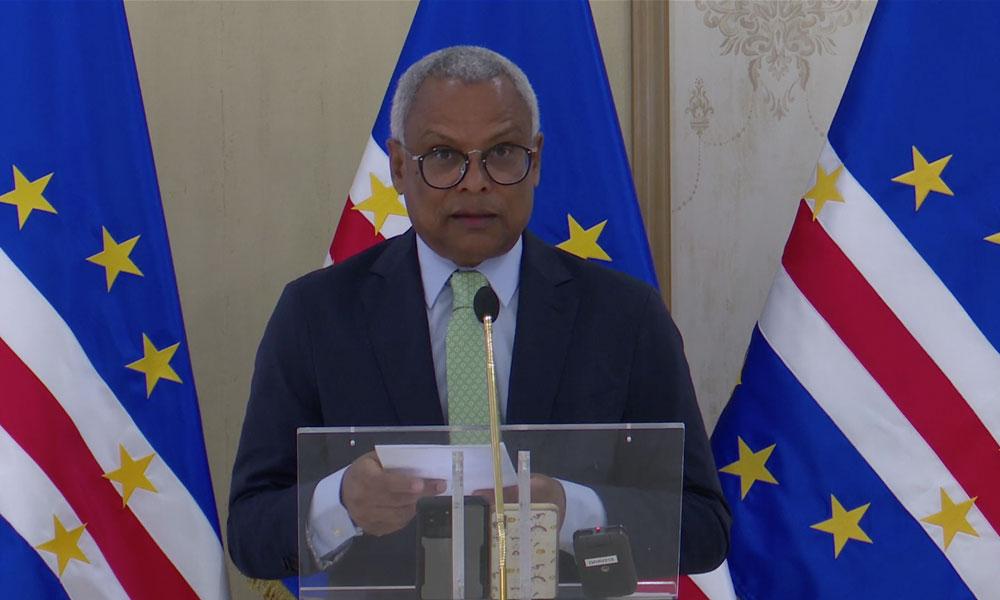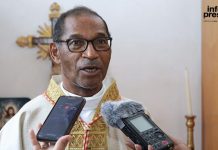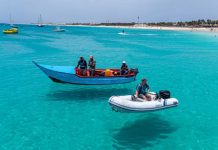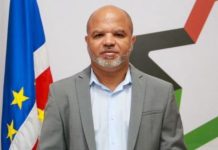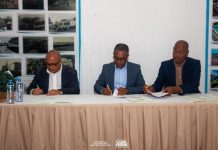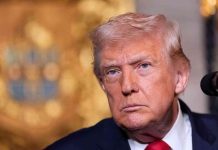Africa-Press – Cape verde. The President of the Republic, José Maria Neves ruled out, today, in Praia, that he has been a soft President, in his first year of term. In a press conference, on balance, he spared no criticism of politicians and parties, and guaranteed that he chose to “maintain” the essential balances for the country, instead of aggravating the problems, in a “chaotic” political context that we are experiencing, seeking to disseminate always the “dialogue”, as he promised. Because of this, he talks about “modest” results, but recalls that, among other issues, he vetoed laws, issued warnings and did not accept “many proposals” that were presented by the Government to ambassadors, prioritizing the law and the need for “robustness and prestige”. ” of the diplomatic career. A year, he said, “difficult”.
In a speech that was initially critical, but realistic in relation to the political and social situation in the country, José Maria Neves says that he has always sought to promote “dialogue” in favor of the “common good” and that he will continue to do so in the future, as promised by “building bridges”.
However, his results, he said, are “modest”, largely because, as he showed, of the country’s political situation.
“Around here there is still some primalism in the way of doing politics, the debates are shallow, funalized and disrespectful. Public space is excessively partisan, which greatly harms social, political and economic dynamics,” he said.
Crisis in intermediary bodies
A scenario that has been degrading and not supporting the “consensus” that the country needs, given the conjuncture.
“The traditional intermediation bodies, political parties, unions, churches, universities and the press, etc., are in crisis. Fragmented and stunned, as society is, inorganic movements, groups of citizens or citizens individually considered, erupt in the public sphere questions or claims that often work as a fuse for constitutional ruptures or ferment ileberalism or populism”, he lamented.
Negative reflections – unemployment and poverty
In this context, he spoke of the “wear and tear” of political institutions and said that the State “cannot provide timely responses to so many social demands”, given the situation experienced with the pandemic, droughts, and the increase in the price of food and energy products that have had “very negative” effects on political and development dynamics.
“There is an increase in unemployment, poverty and inequalities”, he warned once again, as he has been doing over the last few months.
Exercising the position of PR in this context, he said, “is not easy” and recalled that the President of the Republic does not govern, but rather is an “arbitrator and moderator” of the political system.
“It’s not opposition. But it’s not the government’s cheerleader either. Often, the opposition expects the President to oppose the Government, while the Government expects it to clap its hands all the time. I have tried to exercise my role as an arbitrator with serenity, balance and a sense of the common good in terms of the Constitution”, he clarified.
“modest” results
In this sense, he said that he has sought to exercise a judiciary of “collaborative, strategic and positive influence” and “acted in the sense of strengthening mutual trust” between political actors, and of “promoting dialogue and understanding” between them in the “search for mutual trust”. of consensus” on the main issues of the republic.
“I am aware that the results in these questions are modest and that political tension is very high. These are ingrained mental habits and it is not easy to change them”, she lamented, guaranteeing that she will continue to “insist” to change that and “pacify spirits”.
His focus, he said, will continue to be “building bridges and understandings” as “times demand consensus on major national issues”.
It is urgent to solve the “precariousness” of transport
Among other issues such as insecurity and health, the highest magistrate in the nation also noted the “precariousness” of air and maritime transport with “damage” for citizens and companies.
He also drew attention to the fact that the “deficit system” of transport was “harming” the growth of the islands and the country in general, especially the economy.
In this context, he said it was “urgent” to take “durable” measures to “definitely” resolve the issue of transport.
He also warned that “we have to be smart” in the privatization processes and “take better care” of the regulatory system, especially in areas sensitive to the country’s development.
“The President was not lenient”
When asked by A NAÇÃO that, in the opinion of some analysts, he was a bland President, he categorically rejected that adjective.
“The President was not bland, he was calm and sought balance”, he said, also justifying that “when there is a very chaotic environment as we are living, it is essential to have serenity and try above all not to aggravate the problems”.
In this context, it has sought, he reiterates, “to build bridges and understandings and compromises” as well as “to be positive, so that we can find the best solutions”.
“When situations are very difficult, we usually try to look for very simplistic answers to the questions, so it is important that the President has a cool head and the patience of a fisherman to help the country find the best answers to the extremely difficult situation we are going through”, defended.
Will remain “serene and elevated”
In the coming years, José Maria Neves said that he will maintain the same posture of “serene, balanced, patient and elevated”, in the certainty that the situation and his governance will continue to be difficult. “The situation is not easy, the tendency is for some issues to get worse, although we are not very sure….”
The important thing, he concluded, is to be “watchful and continue to exercise with a great sense of State” your responsibilities.
For More News And Analysis About Cape verde Follow Africa-Press

